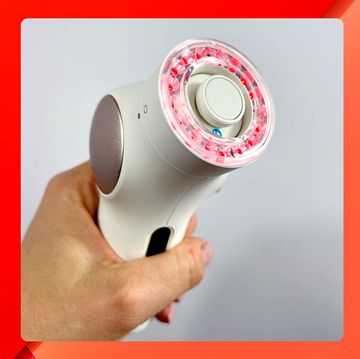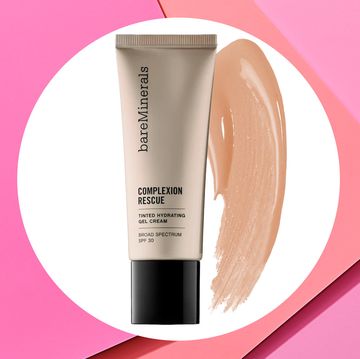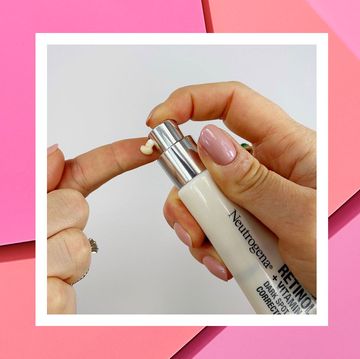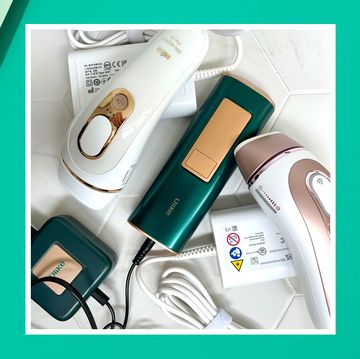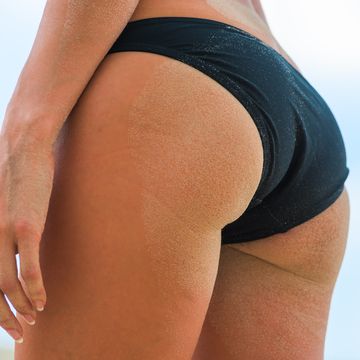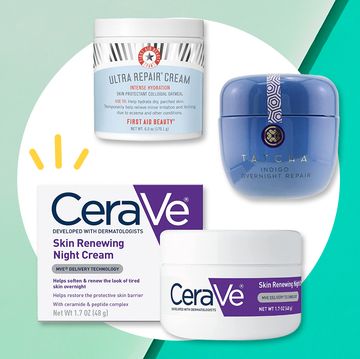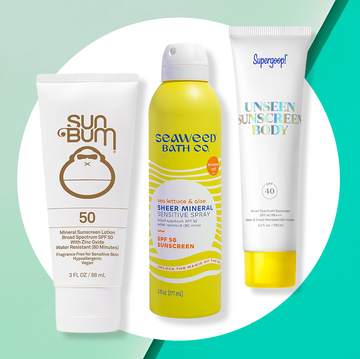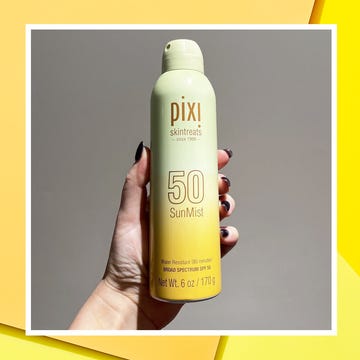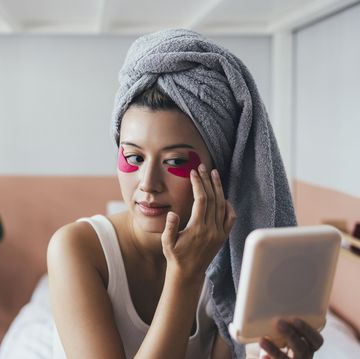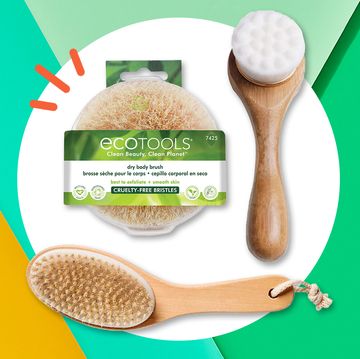This time of year, everything is dry. Your face flakes off in whole pieces, your arms are ashy, and your butt constantly itches in your jeans. Meanwhile, you still have that zit that’s been making appearances on your chin since summertime.
Celebrities would suggest drinking some water—they seem to all claim it’s the secret behind their supple, glowing, always camera-ready skin. Ellen Pompeo drinks water for her skin’s sake. Jennifer Aniston says drinking “lots of water” keeps her looking ageless. And Gabrielle Union has been putting away a gallon a day of H2O since her mid-30s.
While hydrating for better skin does make sense—your skin is 64 percent water, after all—there’s very little research out there to back up water as a skin treatment or declare it a myth.
RELATED: 7 Skin-Care Secrets Aestheticians Swear By
That’s because, since pharmaceutical companies can’t really patent and sell water, researchers are hard-pressed to find anyone to actually fund studies on its benefit, explains Rachel Nazarian, M.D., a board-certified dermatologist at the Schweiger Dermatology Group in New York City and an assistant clinical professor of dermatology at Mount Sinai Hospital.
One Clinics in Dermatology review found only one study that had examined the effects of long-term water intake on skin health. The study, published in 2007 in the International Journal of Cosmetic Science, found that drinking 2.25 liters (9.5 cups) of water every day for four weeks altered skin density and thickness, but the exact results were contradictory. In terms of immediate results, one University of Missouri-Columbia study showed that drinking 500 milliliters of water (about two cups) increased blood flow to the skin. No word on what that means for skin health or appearance, though.
Still, if your skin looks better, what does it matter if research hasn’t yet confirmed the benefit?
“I’ve found that water makes a big difference in skin health,” says Nazarian. “Without adequate water intake, skin appears duller, and wrinkles and pores more prominent.” That may be because water plumps up the skin, causing wrinkles and pores to, more or less, get filled in. What’s more, a variety of structures in the skin that support collagen require water to work effectively, says Julius Few, M.D., director of The Few Institute and clinical professor of plastic surgery at the University of Chicago. Bonus: When skin is hydrated, plump, and elastic, it’s less likely to crack and let in external particles that can cause irritations and blemishes.
“I’ve even found that my patients tend to complain of more acne lesions when they’re dehydrated,” says Nazarian. “We know that small changes in diet can affect the type of oil and sebum that your skin makes, which we know, in turn, can be associated with an increase in acne formation. Dehydration may work the same way to trigger these changes in the oil glands in the skin.”
RELATED: 10 Ways to Drink More Water
Water may also fend off breakouts by decreasing the concentration of oil on your skin. “It is critical to have a stable balance of water to oil on the surface of skin," says Few. "If the skin is too heavily covered in oil relative to water, this can lead to clogged pores with acne breakouts and blemishes."
However, drinking a bunch of water today doesn’t mean your skin will look better for years to come. “Although clinically, when skin is hydrated, it looks plumper, and the signs of aging are minimized, technically, on a histopathologic level [when examined under a microscope], the wrinkles are still there—and nothing has changed permanently,” says Nazarian. “Hydrated skin minimized the appearance—so if you were to withhold water, the skin would show all the original signs of aging again.”
That’s why she recommends giving your skin a steady flow of water: Every day, aim for eight to 10 eight-ounce servings, and spread them out throughout the day as opposed to guzzling them all at once. Your body can only absorb so much water each hour. After that, you’re just going to pee it out before it ever makes its way through your intestines, kidneys, circulation, and to your skin. Bottled or tap, it doesn’t matter—granted your city has decent water.
Hydrating your skin from the inside out isn’t an excuse to skip topical moisturizers. After all, the water you drink may not affect your outermost layers of skin, the ones that get dried out from skin cleansers, says Few. “Moisturizing your skin both internally and externally is a critical combination for healthy, beautiful skin.”
RELATED: 4 Ways to Apply Moisturizer Better




